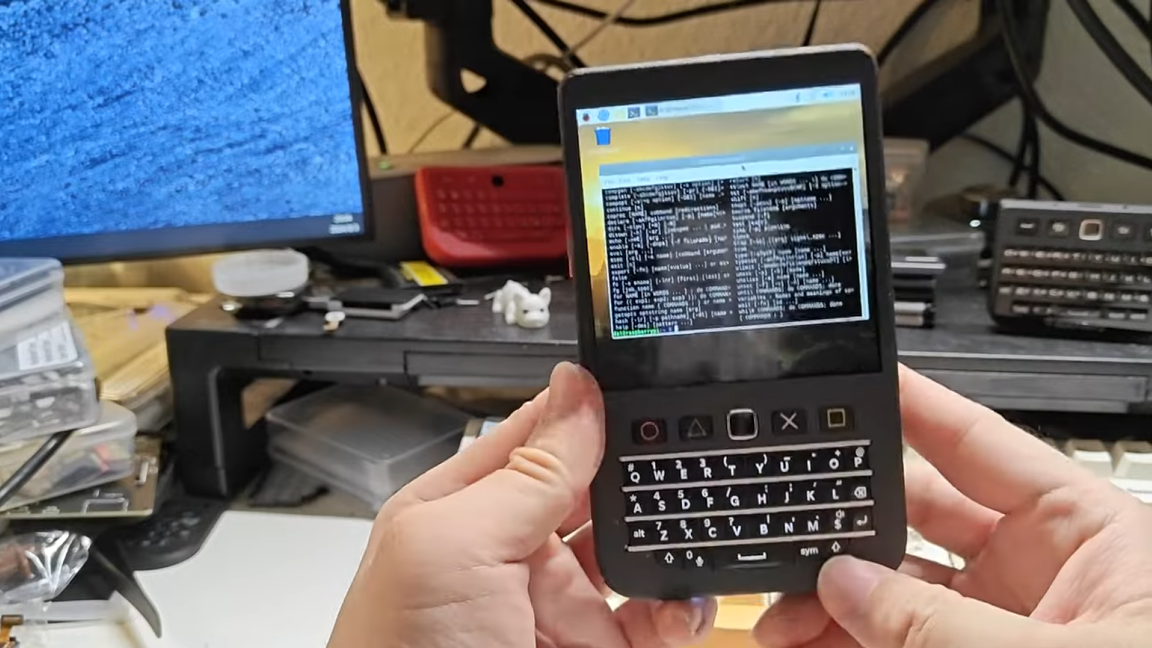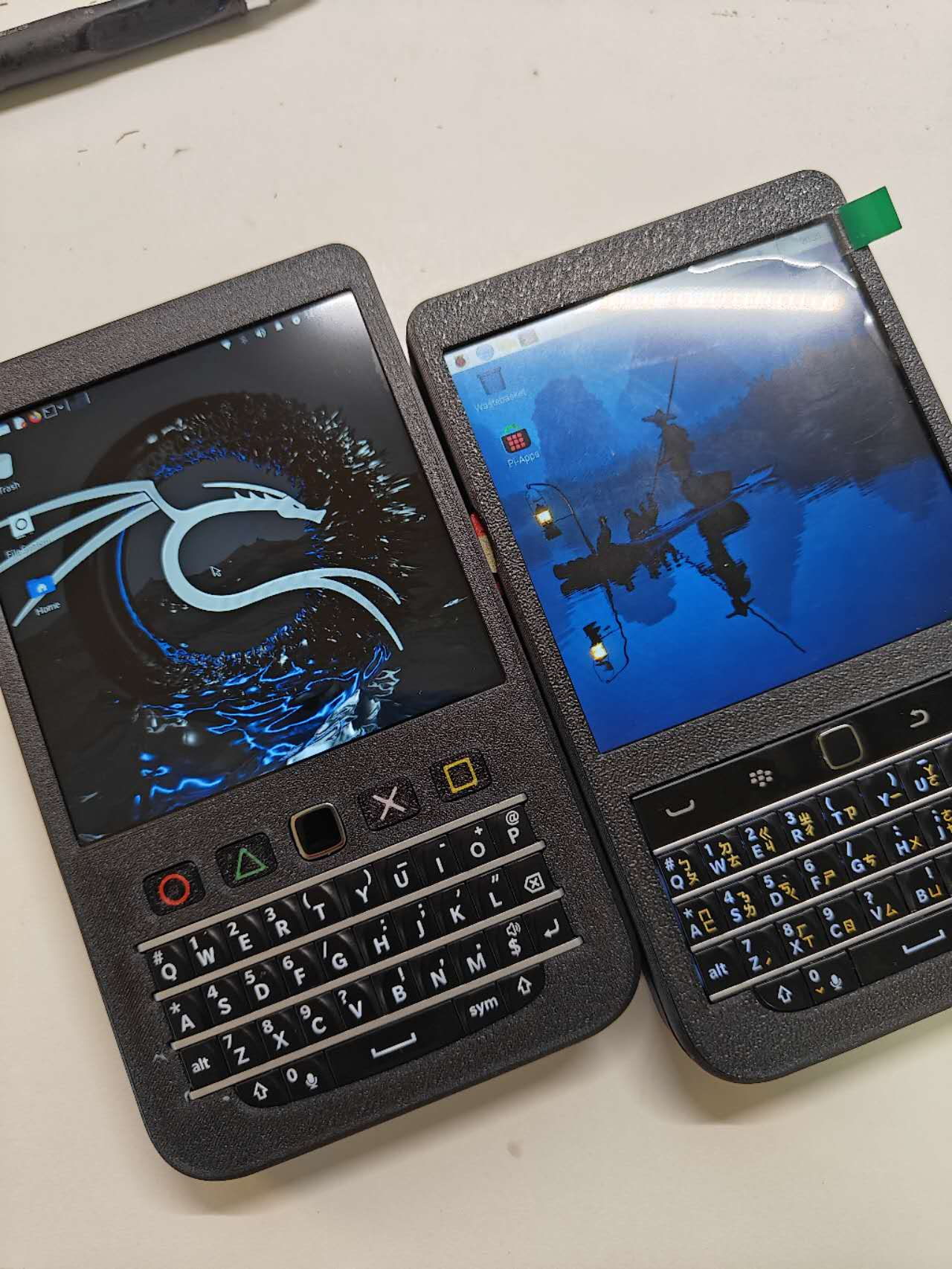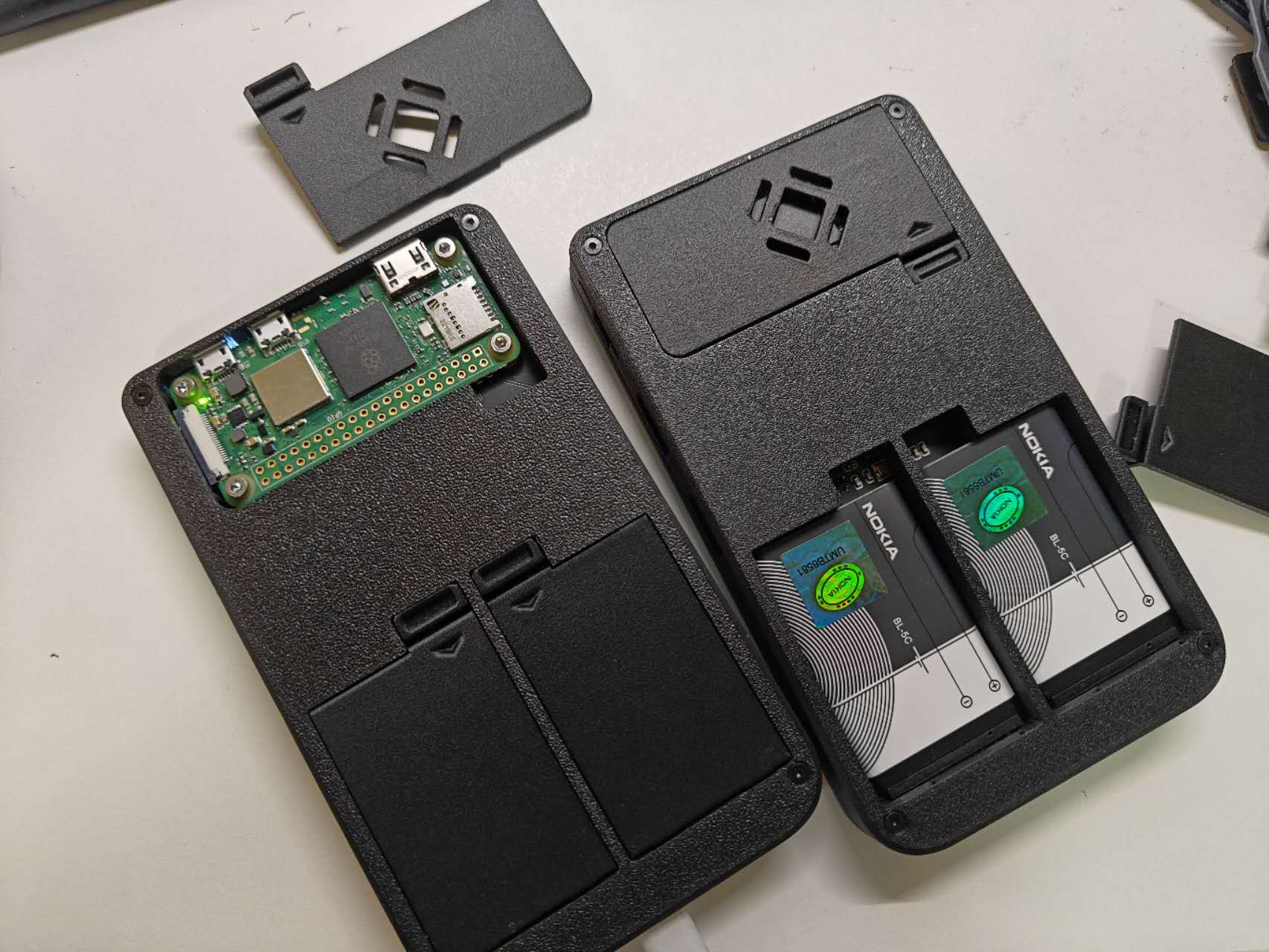
Hacking isn't always a stationary activity, many hackers need to be close to their target (war driving for example) which means portable hardware is a must. Thankfully, Zitao from ZitaoTech has you covered with his Hackberry Pi Zero creation. This handheld, as the name suggests, is oriented towards hackers looking for something to take with them on the go and is powered by one of our favorite SBCs, the Raspberry Pi. That said, you don't have to be up to anything nefarious to enjoy a handheld like this. The flexibility that makes it a great hacking tool also makes it a handy pocket PC.
As you might have guessed, the star of this show is a Raspberry Pi Zero, more specifically the Raspberry Pi Zero 2 W. It's small form factor and powerful processor make it an excellent go to board for this operation. It outputs to a small TFT display and uses a BlackBerry keyboard for input.
According to Zitao, the goal was to create something that would be a fun learning device but also a practical tool that could be used by, presumably ethical, hackers. It has a handful of features that make it a really slick gadget to have on hand like its dual swappable battery design (using Nokia BL-5C cells) which lets you pop in a new battery without losing power. The batteries can last anywhere between 3.5 - 5 hours depending on what you're using it for.


Zitao confirmed in the official project documentation that the system is only compatible with a Raspberry Pi Zero 2W. The Hackberry Pi Zero features a 4-inch TFT display with a resolution of 720 x 720px. A microSD slot is available which makes it easy to switch out operating systems on the fly. All of the hardware is housed inside of a 3D printed shell that also mounts not only the BlackBerry keyboard but also a few custom buttons that resemble the ones you'd find on a PlayStation controller.
As far as the operating system goes, you've got a lot to choose from. Hackers might gravitate to something like Kali but if you're not sure what to use, you can't go wrong with Raspberry Pi OS. Gaming is also any option with RetroPie and a wireless controller. It also helps that the keyboard keys can be remapped using VIAL, an open source keyboard configuration tool.
If you want to get a closer look at this Raspberry Pi project, you can check it out in action over at YouTube and find the full project breakdown over at GitHub.







